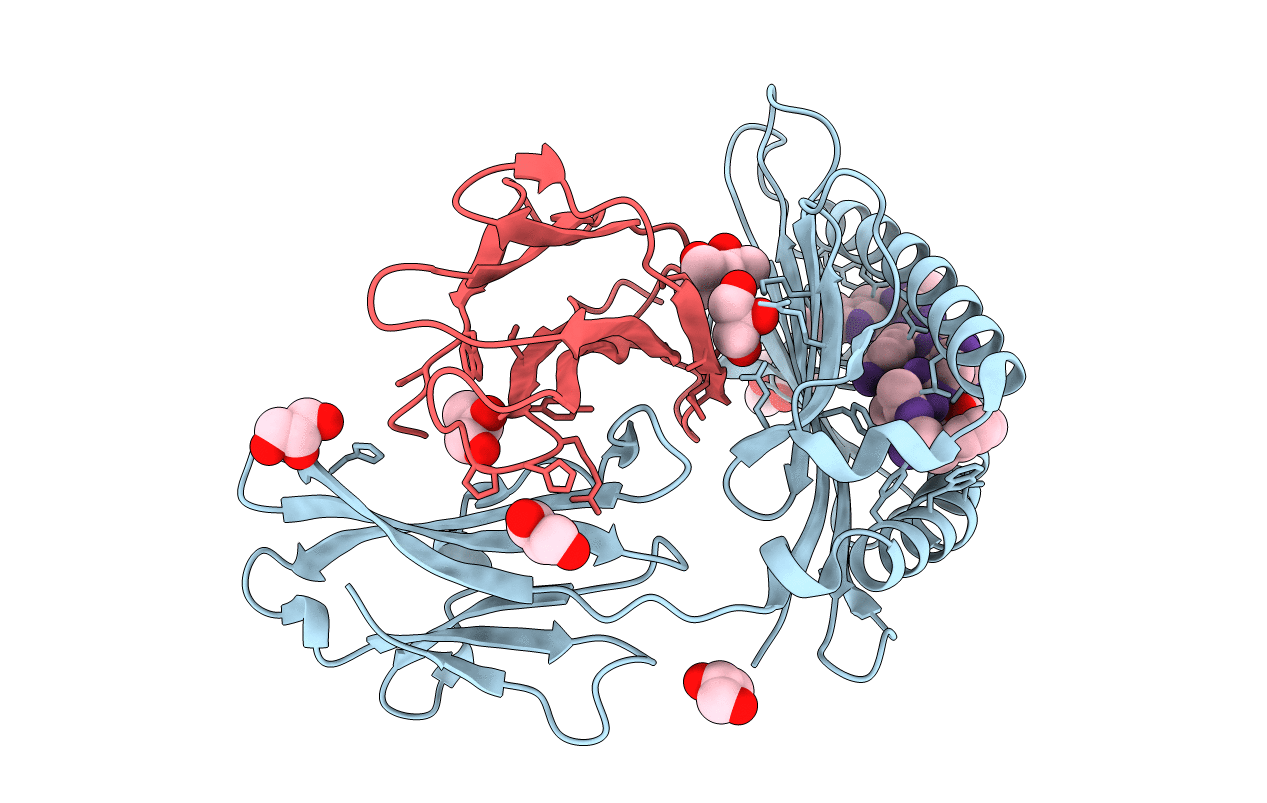
Deposition Date
2014-05-01
Release Date
2015-01-07
Last Version Date
2024-10-30
Entry Detail
PDB ID:
4PGE
Keywords:
Title:
MHC Class I in complex with modified Sendai virus nucleoprotein peptide FAPGNYPAW
Biological Source:
Source Organism:
Mus musculus (Taxon ID: 10090)
Sendai virus (Taxon ID: 11191)
Sendai virus (Taxon ID: 11191)
Host Organism:
Method Details:
Experimental Method:
Resolution:
2.00 Å
R-Value Free:
0.23
R-Value Work:
0.20
R-Value Observed:
0.20
Space Group:
P 21 21 2


